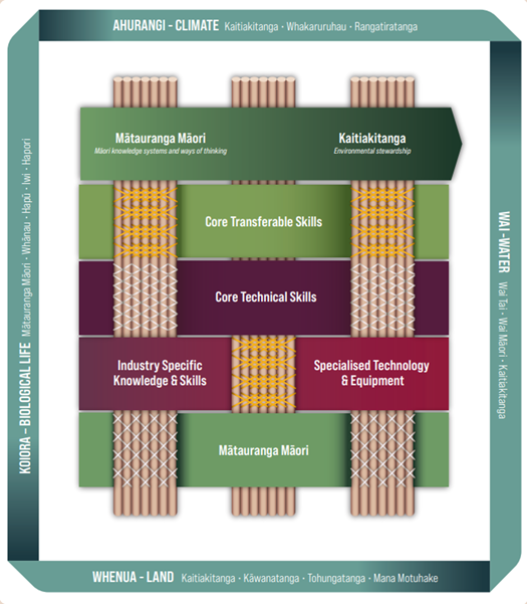What is the project?
In 2023, Muka Tangata published A New Approach to Learner Pathways, a discussion document that examines how good design of qualification, skills standards, and micro-credential design can enable greater flexibility in vocational education and training.
This discussion was set against a food and fibre sector backdrop with the following inter-related issues:
- Previous settings and approaches to qualifications, standards, and other forms of recognition for skills and capabilities have been inflexible and overly complex.
- The number of people in formal vocational education in the food and fibre sector has been dropping over the last five years, against a backdrop of endemic skill and labour shortages.
- The current system is not responsive to the diverse need of employers, ākonga, iwi and hapū Māori.
An important part of the response to these issues is to streamline the food and fibre qualifications suite and other products, and to ensure that quality assurance settings are equally enabling.
The discussion document identified research into the creation of a Food and Fibre Skills Framework as a key piece of work towards maximising learner mobility within the sector and beyond, and to underpin, inform, and support our work in creating and maintaining qualifications, standards, and micro-credentials that are best for our sector.
How did we approach the project?
We asked three research questions as part of this project:
How can we maximise ākonga mobility while ensuring qualifications have currency for employers?
- What is the optimum level of skill flexibility and transferability for ākonga in the food and fibre sector?
- What actions should we take to achieve this outcome?
What was the outcome of the project?
Muka Tangata, with the Food and Fibre Centre of Vocational Excellence, has developed a new skills framework for the food and fibre sector that supports a radically simplified qualification structure, and will enable greater flexibility for ākonga (learners) and transferability of skills across industries in the food and fibre sector.
This project produced A New Approach to Learner Pathways research project 2024, accompanying recommendations paper and the initial skills framework model.
We focused on a skills-first approach in the development of this framework, allowing for the recognition of the necessary skills, knowledge, and attributes to succeed in a given role. The framework is now the basis for our education product development mahi and will be updated based on feedback received through qualifications development projects as the needs of the food and fibre sector change and develop.
